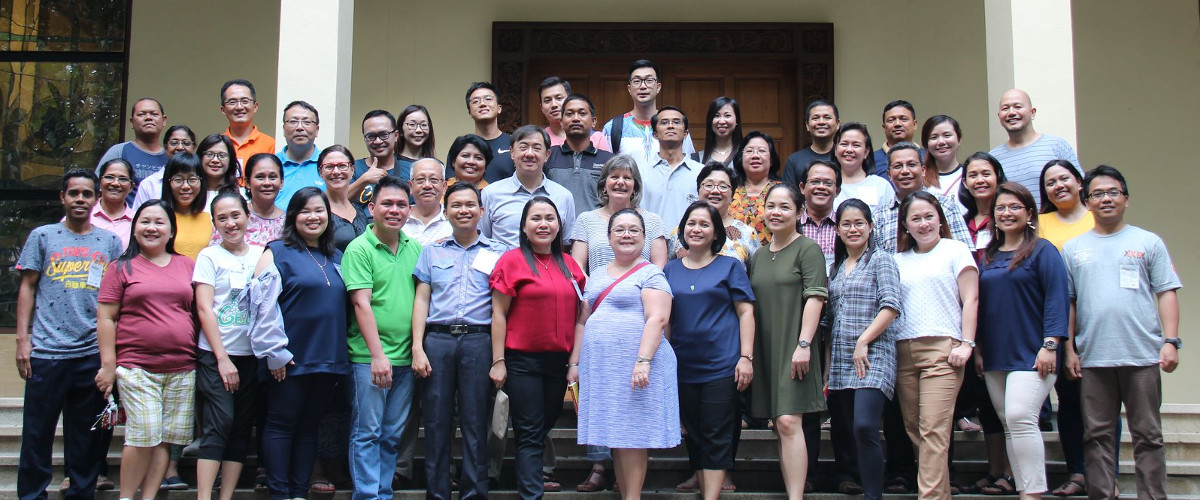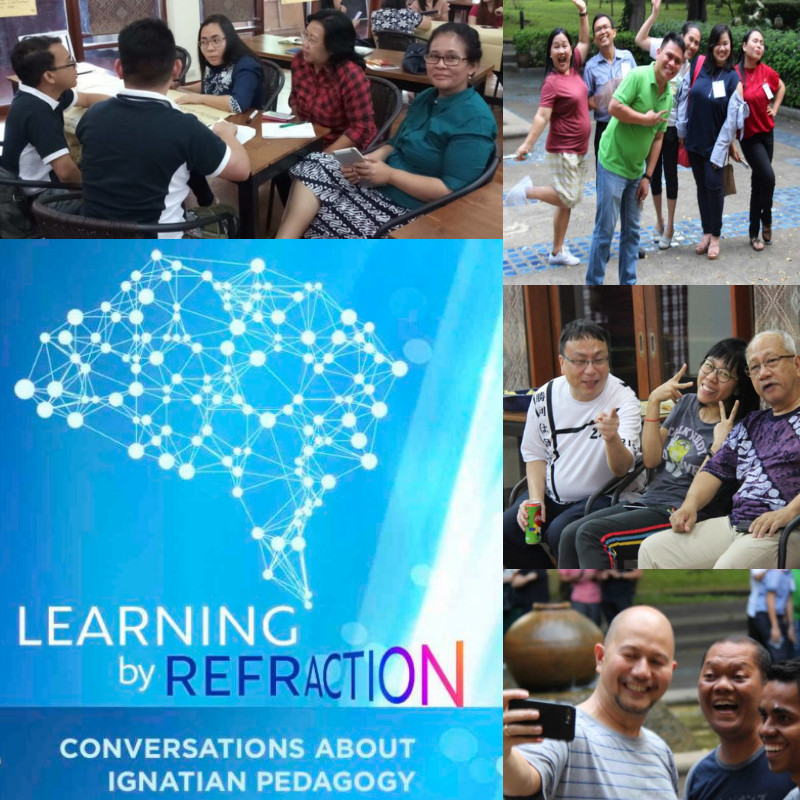 It was the perfect time to talk about Ignatian Pedagogy as “Ignatian Pedagogy: A Practical Approach” marks 25 years since its release. Since then, this Jesuit education document based on the Spiritual Exercises has been impacting the way we teach and help students learn in our schools.
It was the perfect time to talk about Ignatian Pedagogy as “Ignatian Pedagogy: A Practical Approach” marks 25 years since its release. Since then, this Jesuit education document based on the Spiritual Exercises has been impacting the way we teach and help students learn in our schools.
For a whole week, from September 23 to 29, Jesuit and Ignatian educators from Australia, Cambodia, Timor-Leste, Hong Kong, Indonesia, Macau, Philippines and Taiwan gathered at the Seven Fountains Jesuit Retreat Centre in Chiang Mai, Thailand for a workshop on “Learning by refraction: conversations on Ignatian Pedagogy”.
“Refraction refers to the bending of light and sound waves when they pass through a medium, and we think it’s a great metaphor for what should happen in learning in an Ignatian classroom. The students should ‘bend’ or change the content and make it their own,” explained Fr Johnny Go SJ, Jesuit Conference of Asia Pacific (JCAP) Education Secretary.
Fr Go conducted the workshop with Rita Atienza of Ateneo SALT Institute and Jennie Hickey, Executive Officer of Jesuit Education Australia.
“Learning by refraction” is also the title of the teacher’s manual that Fr Go is co-authoring with Atienza scheduled for release this year.
“Refraction also sounds like the combination of reflection and action, the two defining elements of Ignatian Pedagogical Paradigm,” Fr Go added.

The Ignatian Pedagogical Paradigm (IPP) is a model for teaching and learning in a Jesuit school that identifies three key components of Jesuit teaching and learning: (a) drawing on experience, (b) reflecting on that experience and (c) the action that follows from learning. It also highlights understanding the context in which teaching and learning take place, and evaluating the impact and effectiveness of education.
The 42 participants were offered “conversation starters” to provoke them to reflect on their experiences and to rethink what Ignatian Pedagogy means. As one has come to expect from the typical JCAP IGNITE workshops, the diversity of the culture and experiences of the participants spelled all the difference.
The accumulated experience and wisdom in the room were palpable during the discussion, the language difficulties notwithstanding. To practice what they preach, the facilitators made sure the workshop was designed in a way that encouraged the participants to “work and talk shop,” keeping them active learners and enabling them to “learn by doing”.
Even some of the more veteran practitioners of IPP reported some “a-ha” realisations–particularly, the need to take reflection and action more seriously by designing them before their classes, including them in the desired learning outcomes and when possible and desirable, assessing them.
The workshop had begun with the big idea that in the process of learning, learners need to refract the subject matter. In the end, what happened also illustrated the other–even more important–goal of Ignatian and refractive learning: in the process of learning, the learners themselves are transformed–and indeed refracted.
For one of the morning prayers, Fr Go led the group to pray over the “memories of learning and laughter” created during the workshop. It was a moment of profound gratitude. [JCAP Education]

